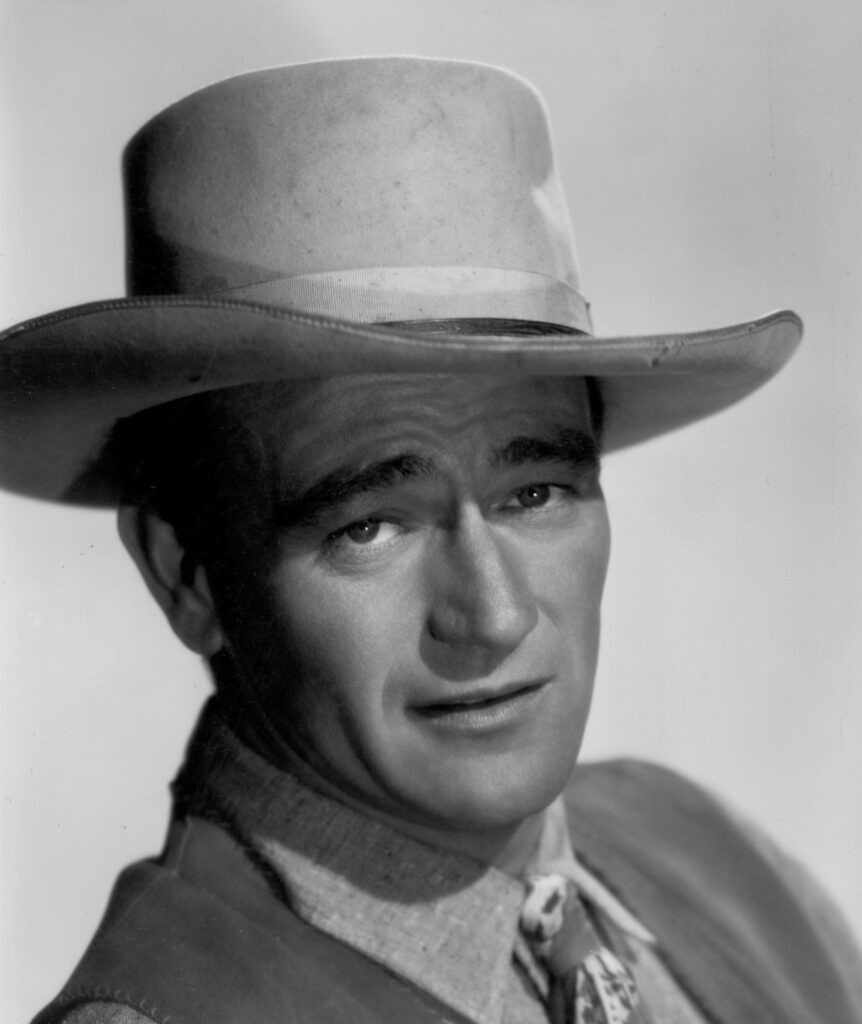John Wayne, a name synonymous with the American West and rugged heroism, remains an enduring icon nearly half a century after his passing. His death in 1979 marked not just the loss of a beloved actor, but the end of an era for many who saw him as the embodiment of American ideals. From his early roles to his status as a box office titan, Wayne’s career spanned decades, leaving an indelible mark on cinema and popular culture. While his on-screen persona was larger than life, his eventual death served as a stark reminder of mortality, even for legends. This article explores the life and career of John Wayne, culminating in the narrative of his death and the lasting legacy he left behind.
 A portrait of a young John Wayne wearing a cowboy hat, showcasing his iconic look that made him a Western film legend.
A portrait of a young John Wayne wearing a cowboy hat, showcasing his iconic look that made him a Western film legend.
Born Marion Morrison on May 26, 1907, in Winterset, Iowa, the man who would become John Wayne had humble beginnings. His family’s move to Glendale, California, in his youth set the stage for his transformation. It was there he gained the nickname “Duke,” a moniker inspired by his Airedale terrier. A football scholarship to the University of Southern California provided an initial path, but a summer job at Fox Film Corporation in 1926 rerouted his destiny toward Hollywood. Under the watchful eye of director John Ford, Wayne began in bit parts, eventually landing his first leading role in the 1930 film The Big Trail. Legend has it that director Raoul Walsh encouraged the name change from Marion Morrison to the more masculine and memorable John Wayne, a name that would soon resonate worldwide.
The year 1939 proved pivotal. The release of Stagecoach catapulted John Wayne to stardom. From that point forward, his career trajectory ascended without pause. Though forever associated with Westerns, his filmography demonstrated versatility, encompassing WWII epics, crime dramas, and even romantic comedies. Among his most celebrated works are Red River, The Searchers, and The Alamo, the latter of which he not only starred in but also produced and directed, showcasing his multifaceted talent. Other notable titles include McLintock!, The Green Berets, and True Grit. It was for his role in True Grit in 1969 that Wayne received the Academy Award for Best Actor, validating his critical acclaim alongside his commercial success.
Beyond the silver screen, John Wayne was a staunch supporter of the U.S. military. He dedicated time to entertain troops through the United Service Organization (USO) during World War II and in Vietnam, demonstrating his patriotism and appreciation for service members. His contributions were further recognized posthumously with the Congressional Gold Medal and the Presidential Medal of Freedom, awarded by President Jimmy Carter in 1980.
In his personal life, Wayne was married three times and fathered seven children. A personal battle began in 1964 when he was diagnosed with lung cancer. Characteristically, Wayne faced this challenge head-on, using his public platform to raise awareness about the disease. He initially overcame lung cancer, but sadly, the fight was not over. John Wayne’s death came on June 11, 1979, due to stomach cancer. His passing marked a profound loss felt across the nation and the globe.
In the wake of John Wayne’s death, his family established two significant institutions in his honor: the John Wayne Cancer Foundation and the John Wayne Cancer Institute at St. John’s Hospital in Santa Monica, California. These organizations stand as a testament to his courageous fight and his family’s commitment to combating the disease that ultimately claimed his life. John Wayne’s death was more than just the loss of a movie star; it was the departure of an American icon whose legacy continues to inspire and resonate with audiences today.
